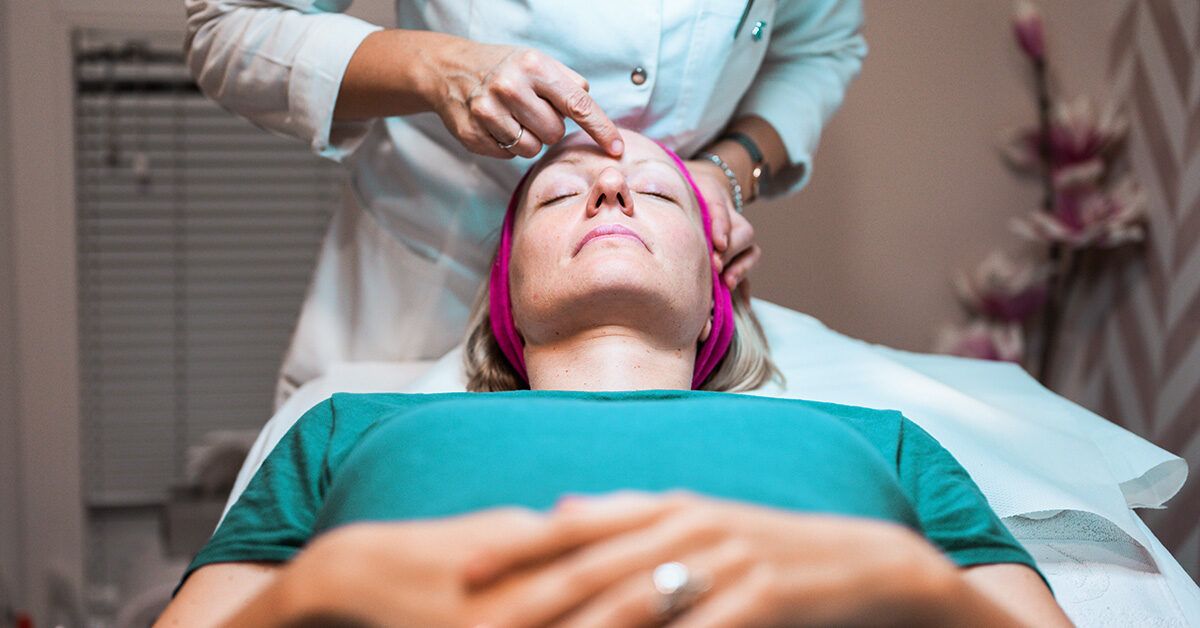
When it comes to taking care of your skin, there are two professionals you might turn to for help: an esthetician and a dermatologist. But what’s the difference between the two? Let’s take a closer look.
Estheticians: The Skincare Experts
Estheticians are skincare specialists who focus on enhancing the appearance and health of your skin. They provide a wide range of services, including facials, exfoliation treatments, and hair removal. Estheticians are knowledgeable about various skincare products and can recommend the best ones for your skin type.
While estheticians can address common skincare concerns like acne, dryness, and aging, their expertise lies primarily in improving the overall appearance of your skin. They can assist with maintaining healthy skin and offer advice on daily skincare routines.
Dermatologists: The Skin Doctors
Dermatologists, on the other hand, are medical doctors who specialize in diagnosing and treating conditions related to the skin, hair, nails, and mucous membranes. With over 3,000 conditions in their purview, dermatologists can address a broad range of issues.
Medical dermatologists focus on the health of your skin, diagnosing and treating conditions such as alopecia, eczema, psoriasis, skin cancer, contact dermatitis, and more. They can also prescribe medications for skin-related issues like acne.
Cosmetic dermatologists, however, specialize in aesthetic treatments aimed at improving the appearance of your skin. They offer procedures like dermal fillers, Botox, chemical peels, laser resurfacing, and laser hair removal. These treatments are not medically necessary but can help enhance your skin’s aesthetics.
Training and Credentials
Dermatologists undergo extensive education and training before becoming experts in their field. They complete at least 12 years of education, including medical school, a year-long internship, and three years of residency where they treat patients under the guidance of experienced dermatologists.
After residency, some dermatologists pursue further specialization through fellowship programs. They can become dermatopathologists, diagnosing skin diseases under a microscope, or Mohs surgeons, skilled in removing minimal amounts of skin cancer using a specialized technique.
To become board-certified, dermatologists must pass an exam. In North America, the American Board of Dermatology, the American Osteopathic Board of Dermatology, and the Royal College of Physicians and Surgeons of Canada are the most prestigious boards that grant this certification.
Conclusion
Estheticians are skincare specialists who focus on enhancing the appearance and health of your skin, while dermatologists are medical doctors specializing in diagnosing and treating various skin conditions. Estheticians primarily provide skincare services to improve the overall appearance of your skin, while dermatologists offer medical and cosmetic treatments.
If you’re looking to address specific skin concerns or require medical treatment, consulting a dermatologist is recommended. However, if you’re interested in skincare routines and maintaining healthy skin, an esthetician can provide expert advice and services.
Remember, maintaining the health and beauty of your skin is a collaborative effort between you and your chosen skincare professional. Consult with them to create a personalized skincare routine that suits your needs.
FAQs
Q: Can estheticians perform medical treatments like dermatologists?
A: No, estheticians are not qualified to perform medical treatments like dermatologists. They focus on improving the appearance of the skin and providing non-invasive skincare services.
Q: Do I need a referral to see a dermatologist?
A: In most cases, you do not need a referral to see a dermatologist. However, it’s recommended to check with your insurance provider to understand any requirements they may have.
Q: Does insurance cover cosmetic dermatology treatments?
A: No, insurance typically does not cover cosmetic dermatology treatments as they are considered elective procedures. Insurance coverage is usually limited to medically necessary treatments.
Q: How often should I see a dermatologist?
A: The frequency of dermatologist visits depends on your specific needs and any existing skin conditions. It’s best to consult with a dermatologist to determine an appropriate schedule for your check-ups.
Q: Can dermatologists provide skincare advice like estheticians?
A: Yes, dermatologists can provide skincare advice and recommend skincare products. They have extensive knowledge of various skin conditions and can guide you in choosing the right products for your skin.
Q: Are dermatologists the only professionals who can prescribe skincare medication?
A: Dermatologists are qualified to prescribe medication for skin-related issues. However, some other healthcare professionals, such as primary care physicians, can also prescribe certain skincare medications.
Q: How long does it take to become a dermatologist?
A: It takes at least 12 years of education and training to become a dermatologist, including four years of medical school, one year of internship, and three years of residency. Additional specialization can require more time.